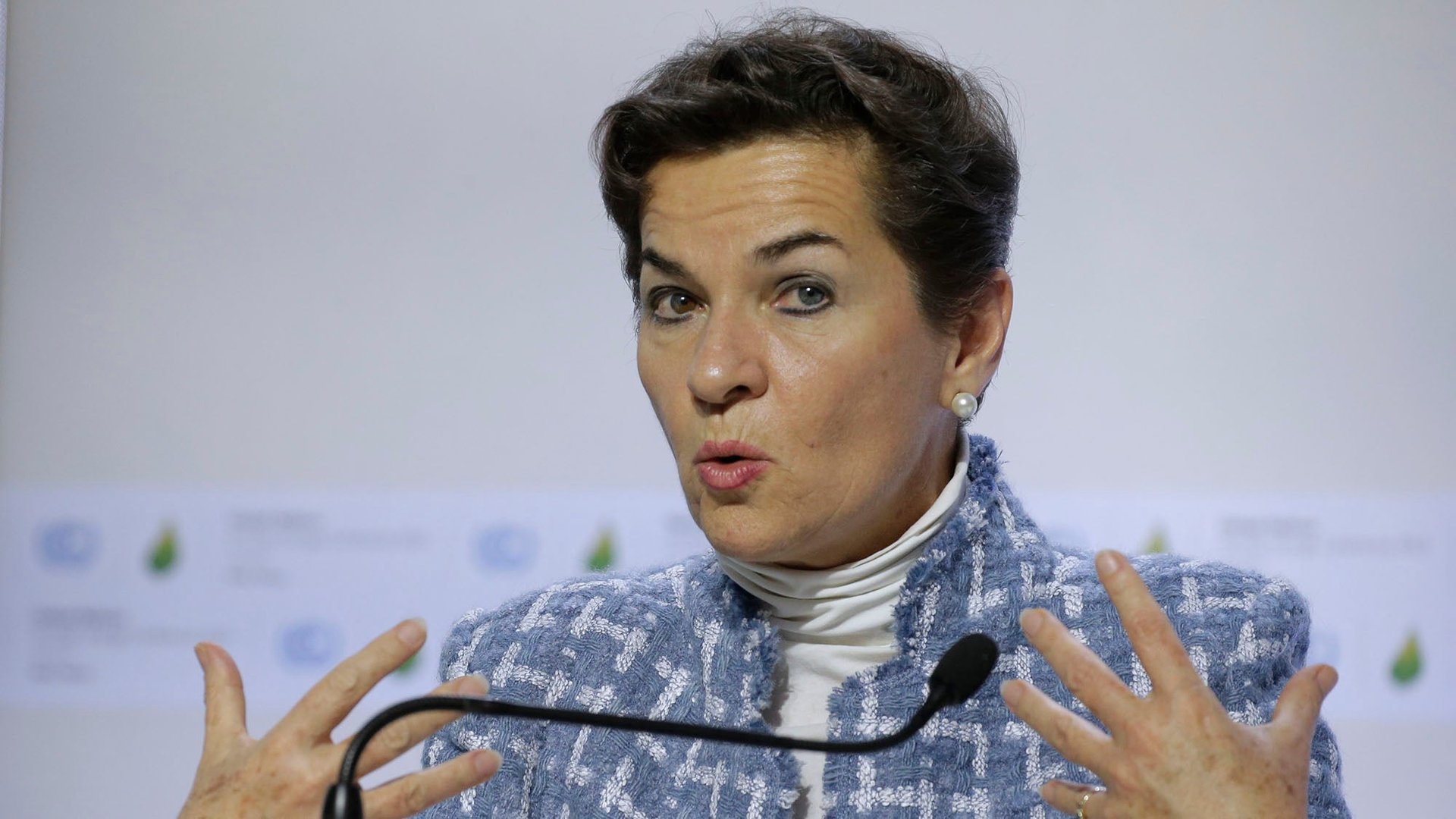Meet the woman who helped seal an uprecedented climate-change pact
For nearly two weeks, world leaders have been arguing over the minutiae of a deal on the new global strategy to counter climate change.


For nearly two weeks, world leaders have been arguing over the minutiae of a deal on the new global strategy to counter climate change.
Earlier today (Dec. 12), the final text of this year’s climate-change resolution in Paris was signed, sealed, and delivered, as is customary for any United Nations (UN) agreement, in six official languages. And later in the day, in a surprising and historic first, the agreement was also ratified by all 195 countries involved in the negotiations. Finally, Christina Figueres, a Costa Rican diplomate behind the historic deal, can take a holiday.
But how did she do it? Elizabeth Kolbert tells the back story in a wonderful profile of Figueres in the New Yorker.
In 2010, Figueres became executive secretary of the UN Framework Convention on Climate Change (UNFCC), which is tasked with organizing the annual Conference of the Parties (COP). The job, Kolbert writes, “may possess the very highest ratio of responsibility (preventing global collapse) to authority (practically none).”
Most COPs have ended in agreements that haven’t really helped us curb enough carbon dioxide emissions, a necessary step to slowing the speed with which our world heats up. At the 21st session this year, COP21, Figueres’s mission was to ensure that all of 195 participating countries came to a more ambitious agreement than in the past.
She needed a revolution to make it happen. But as the daughter of José Figueres Ferrer, who led the Costa Rican revolution and then served as the country’s president three times, she had no qualms about starting one. “In my experience, revolutions have been very positive,” she told the New Yorker.
So for months before COP21, Figueres and her team traveled to meet any one who could significantly help their cause.“I have no problem sitting on the floor, sipping hot water from a dirty cup. I also have no problem sitting next to Prince Charles,” she told Kolbert. ”Certainly I won’t talk about ‘decarbonization’ when I’m in Saudi Arabia… Why would I want to threaten them? I need them on my side.” (Indeed, in the final days of the negotiations at COP21, Saudi Arabia was threatening to throw in a wrench and walk away.)
And it worked. COP participants came to an agreement today, and the deal they unveiled includes an unprecedented goal to keep the global temperature rise below 1.5°C.
Now we have to wait and see whether the Paris deal will have the impact that it promises. The deal forces countries to make few hard commitments. It is undoubtedly a disappointment to some who hoped for sudden sweeping change or stricter accountability. But Figueres’s faith in mankind’s ”moral bedrock” remains a reassuring counterpoint to cynicism about the conference’s conclusions:
Do we have the right to deprive people of their homes just because I want to own three SUVs? It just doesn’t make any sense. And it’s not how we think of ourselves. We don’t think of ourselves as being egotistical, immoral individuals. And we’re not. Fundamentally, we all have a morality bedrock. Every single human being has that.
Change still looks slow for now. But to hear Figueres tell it, there may be a revolution in the works, yet.